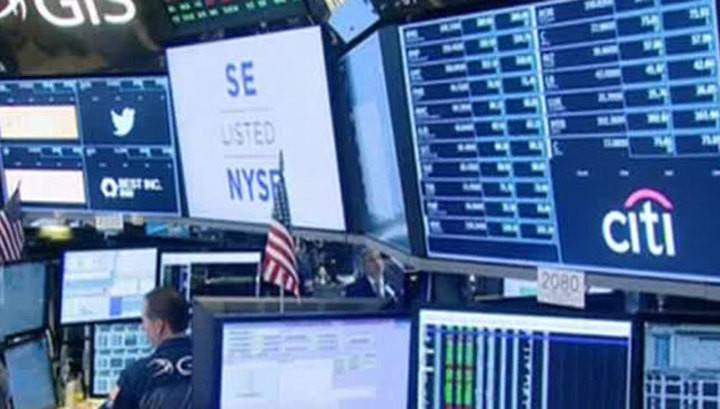
This morning, stocks in the Asia-Pacific region are experiencing an almost universal decline, still caused by the continuous spread of coronavirus infection and scares of a possible second wave of a pandemic.
To date, the number of deaths caused by the virus has exceeded the mark of 500 thousand, and the number of cases has exceeded the level of 10 million. Such a high number of cases seriously scared the markets, which immediately responded with a decline.
Japan's Nikkei 225 Index immediately fell 1.94% in the morning. The indicator of retail sales in the country over the past month rose by 2.1% compared with the previous month. In average annual terms, it decreased by 12.3%. Real numbers did not coincide with preliminary assumptions of analysts who expected a decline in no way lower than 11.6%. In addition, sales have been declining for three consecutive months, the main reason for which is the negative impact of the COVID-19 pandemic on demand. The April indicator was 9.9% lower than the previous month, and in annual terms, the decline was 13.9%.
Japan's corporate sector is negative. Investment companies, as well as automobile and electronics manufacturers, are particularly affected.
China's Shanghai Composite Index also fell 0.68% in the morning. Hong Kong's Hang Seng Index followed and declined even further to 1.19%. The statistics on the level of profit of the largest enterprises of the industrial sector of the PRC for the last month of the spring of this year were quite encouraging. Profit level rose by 6%, which is associated with the restoration of large-scale production and the resumption of sales as quarantine measures related to the pandemic are lifted. The total profit in the large industry was 582.34 billion yuan, which corresponds to 82.25 billion dollars. Recall that the April indicator was in the negative zone, which reflected a decline of 4.3%.
The Kospi South Korea index also went on a downward correction today and sank to 1.61%. The electronics and car manufacturing sectors have also shrunk.
Australia's S&P/ASX 200 index showed a significant decline of 1.79%. The country's banking sector is recording a rapid decline on all fronts. Securities of National Australia Bank, which dipped by 2.6% in the morning, were especially affected. State mining companies are also in the red.
The stock markets of the United States of America also win back the news about the growing number of infected in the world and in the country. The last trading day last week ended with a decline, which led to the lowest level of almost all indices over the past two weeks.
Investors are extremely concerned about the number of new COVID-19 cases in some states of America. The authorities even had to stop the lifting of quarantine measures, which caused even greater tension among market participants. The prospect of a repetition of the events of spring, of course, pleases no one. Stock indices are under significant pressure amid a slowdown in the already not-so-fast pace of economic recovery.
Securities of the US banking sector adjust down. They could suffer the most significant losses amid the ongoing pandemic crisis. According to preliminary estimates, losses could amount to about $ 700 billion, which is quite a large sum for the US economy.
In order to support and save the capital of financial companies, the main regulator of the country which is the US Federal Reserve has decided to stop the process of repurchasing own shares of banks for the entire third quarter of this year. Some members of the organization even advocated a complete exemption from such payments, but so far such actions are not considered.
In addition, on the last business day of last week, statistics were released on the level of spending in the United States for the last month of spring. As it became known, this indicator showed a significant increase, despite the fact that the income of the Americans also fell significantly. Costs grew by 8.2%, while in April it fell at a record 12.6%. Revenues in May decreased by 4.2%, while in April there was an increase of 10.8%.
The Dow Jones Industrial Average last week closed its trading with a drop of 2.84% or 730.05 points, which sent it to 25 015.55 points.
The Standard & Poor's 500 index fell 2.42% or 74.71 points. Thus, its level was in the region of 3,009.05 points.
The Nasdaq Composite Index dipped 2.59% or 259.78 points, which made it jump to 9,757.22 points.
In general, over the past week, the Dow Jones index fell by 3.3%, the S&P 500 decreased by 2.9%, and the Nasdaq lost less than the rest with only 1.9%.
The negative impact of an unfavorable epidemiological situation in the world is also felt on the European stock exchanges. The possibility of a second wave of a pandemic makes the indices of Western European countries shrink.
The International Monetary Fund has already made a statement that securities markets may face another and, possibly, more significant wave of sales. It will be especially serious if restrictive measures are introduced again.
The ECB is confident that the crisis has not yet peaked, thus the main difficult moments are yet to come, and the current decline in the stock market is a sign of an impending crisis wave.
The total index of enterprises in the European region Stoxx Europe 600 following the auction on Friday fell by 0.39% and was at around 358.32 points.
The German DAX Index fell 0.73%. The French CAC index also fell by 0.18%. Same with Italy's FTSE MIB index at 0.57%. The Spanish index showed the most serious negative dynamics with 1.26%. But the UK FTSE 100 index, on the contrary, began to move in the opposite direction and recorded a growth of 0.2%.





















